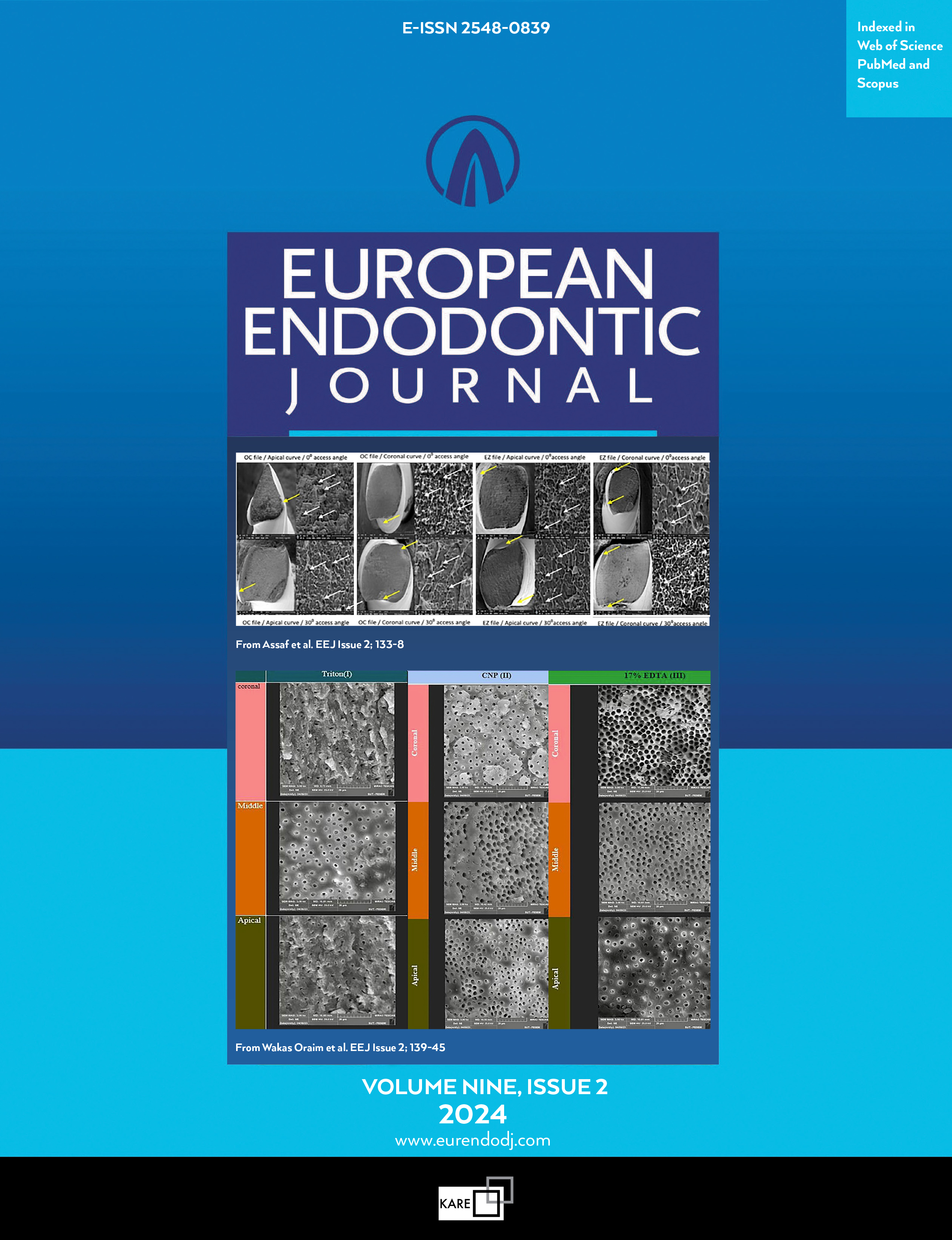Metrics
2023 IMPACT FACTOR
5 year Impact Factor
Eigenfactor
2023 CiteScore
Journal Citation Reports (Clarivate, 2024)(Dentistry, Oral Surgery & Medicine (Science))
Influence of Method of Teaching Endodontics on the Self-Efficacy and Self-Perceived Competence of Undergraduate Dental Students
Annemarie Baaij, Ahmet Rıfat ÖzokDepartment of Endodontology, Academic Centre for Dentistry Amsterdam (ACTA), University of Amsterdam and Vrije Universiteit Amsterdam, Amsterdam, NetherlandsObjective: This study assessed whether self-efficacy and the self-perceived competence of undergraduate dental students had been influenced by the method of teaching endodontics.
Methods: Certain modules of the undergraduate endodontic programme at the Academic Centre for Dentistry Amsterdam (ACTA) including the tutorials, the clinical training and the assessment were revised. The self-efficacy and self-perceived competence close to graduation of an intermediate cohort of 24 students who attended all or some of the former modules or the revised modules were assessed. Additionally, the performance of students in performing root canal treatments was assessed according to predetermined criteria. Data were analysed using Cohens Kappa, Cronbachs Alpha, Mann-Whitney and T-tests.
Results: Self-efficacy and the self-perceived competence of students who followed the former modules of clinical training and assessment were similar to those of students who followed the revised modules. The revised module with higher number of tutorials increased students self-perceived competence, but did not influence their self-efficacy statistically significantly. Not the entire number, but the number of root canal treatments performed under supervision of endodontists was related with an increase in students self-efficacy and self-perceived competence. The performance of students in performing root canal tretaments was not statistically significantly related to their self-efficacy and self-perceived competence.
Conclusion: Among the modules and their components assessed in the present study, only the number of tutorials and the number of root canal treatments performed under supervision of endodontists influenced the self-efficacy and the self-perceived competence of students.
Corresponding Author: Annemarie Baaij, Netherlands
Manuscript Language: English
(1093 downloaded)


